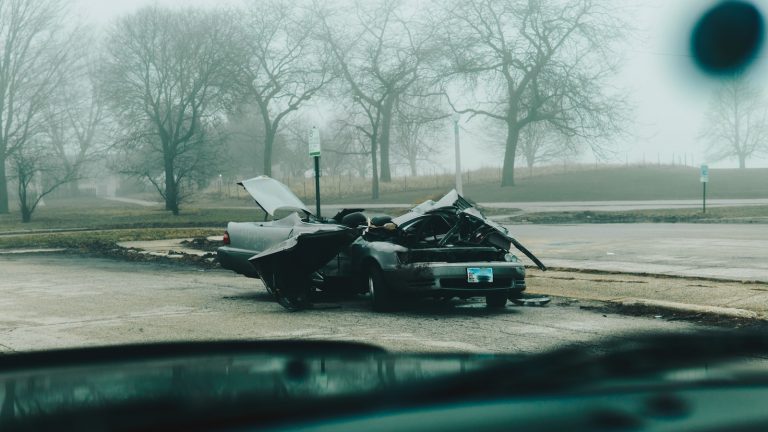Over the past decade, car accidents have remained an issue of concern in the United States, with the NHTSA reporting around 1.7 million police-reported crashes in 2022 alone, resulting in over 5.2 million injuries.
While many of the victims were entitled to compensation, a staggering number of claims were lost or significantly reduced due to seemingly minor mistakes they made in the aftermath of the accident.
These slight mistakes had huge consequences, forcing injured parties to pay out of pocket for their medical treatments and vehicle repairs, even when another driver was at fault.
So, if you want to protect yourself and ensure you don’t fall victim to these wrong moves, this blog will enlighten you on what and what not to do after a collision.
Leaving the Accident Scene
Irrespective of how serious the collision was, it’s essential to remain at the location until you’ve fulfilled all legal obligations.
According to Neufeld, Kleinberg & Pinkiert, PA, a renowned group of Miami personal injury attorneys, fleeing the scene can result in consequences like criminal charges and the loss of your right to file an insurance claim or lawsuit.
When you’re involved in an accident, check all parties’ well-being and wait for law enforcement to arrive.
Forgetting to Inform Authorities
Some people believe that involving the police is unnecessary for minor fender-benders or when there are no apparent injuries. However, this decision can have repercussions down the line.
A police report serves as an official, unbiased account of the collision. It will include all necessary details, such as the date, time, location, parties affected, and statements from witnesses and drivers.
This document can be instrumental in supporting and helping you with insurance companies or in court. So, don’t hesitate to call the police, even if the accident seems minor.
Accepting Blame Ignorantly
After the collision, you might feel compelled to apologize or accept blame, especially if you believe you may have contributed in some way. Still, this critical mistake can severely impact your ability to seek compensation.
You must understand that deciding guilt in a car accident is a complex process that involves various factors, many of which may not be immediately apparent at the scene.
What you perceive as your fault could be the result of another driver’s negligence, poor road conditions, or vehicle malfunction.
So, avoid making any statements that could be interpreted as an admission of guilt. Stick to the facts when addressing the accident with other parties, police, or insurance representatives.
Overlooking Evidence
It’s easy to overlook the importance of collecting evidence after the collision, but this oversight can significantly weaken your position when filing an insurance claim or pursuing legal action.
This is why you must use your smartphone to capture photographs of any damages, skid marks, road conditions, and any visible injuries.
Also, if there are witnesses, politely ask for their contact information. These details can provide crucial support for your case, especially if conflicting accounts of the accident emerge later.
Forgetting to Collect the Other Driver’s Details
Another common mistake is neglecting to exchange details with the other parties affected. So, make it a priority to obtain their names, phone numbers, addresses, and insurance information.
These details are essential for filing your insurance claim and may be necessary if legal action arises. Don’t rely solely on the police report, as it may not always include all the required information.
Sharing Too Much with Insurers
While it’s essential to notify your insurance company about the accident, be cautious about the information you provide. Many make the mistake of oversharing or speculating about the accident’s details during their initial conversation with the insurance representative.
Stick to the basic facts when reporting the accident. Avoid making statements about fault or giving a recorded statement without consulting a lawyer.
Insurance companies may use your words against you to minimize their payout or deny your claim altogether. In your best interest, be concise and factual in your communications with them.
Concealing Past Accidents
Insurance companies can access extensive databases and quickly uncover your accident history. Being dishonest with them about your past incidents can be interpreted as fraud, leading to claim denial or even legal consequences.
Always provide accurate information about your driving history when asked. If you are concerned about how some of your past accidents might affect your current claim, consult a legal professional for guidance.
Running to Social Media
Discussing your accident or injury claim online can seriously affect your case. Insurance companies and defense attorneys often scan through your social media feeds for information that could contradict your claim.
A seemingly innocent post about your activities or emotional state could be used to challenge the severity of your injuries or the impact on your life.
So, it’s best to avoid mentioning the accident or your recovery on social media until your claim is fully resolved.
Wrapping Up
If you avoid all these mistakes, you should be able to get the fair compensation you deserve for your troubles.

0 Comments